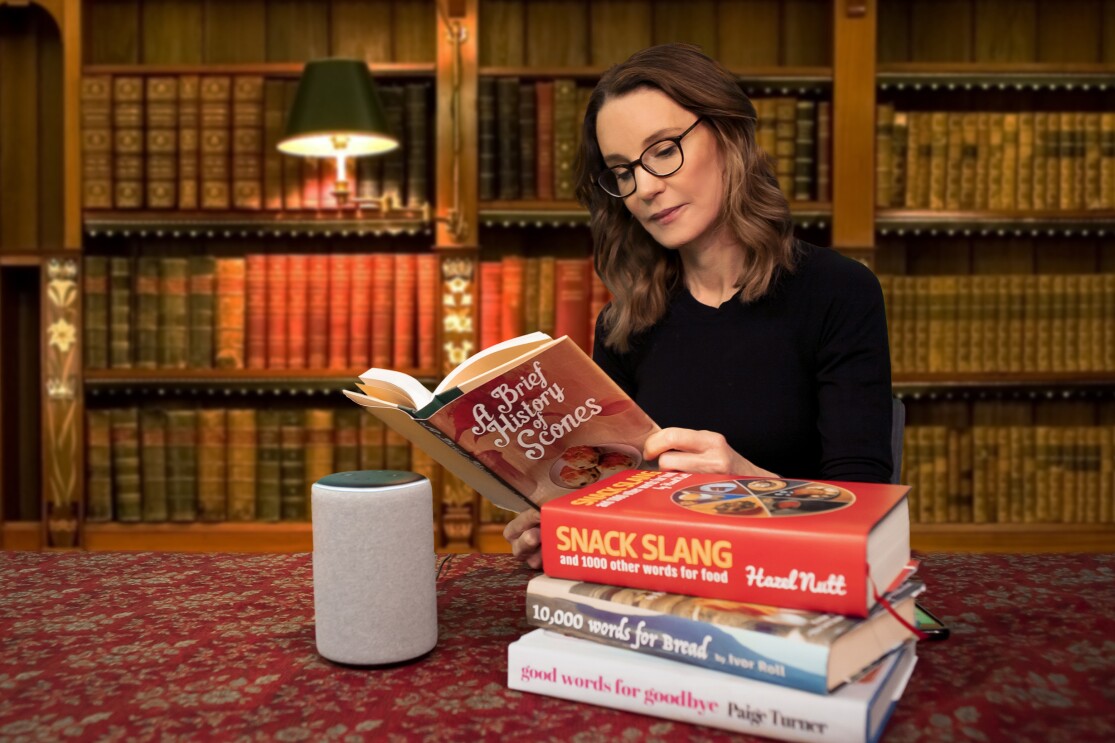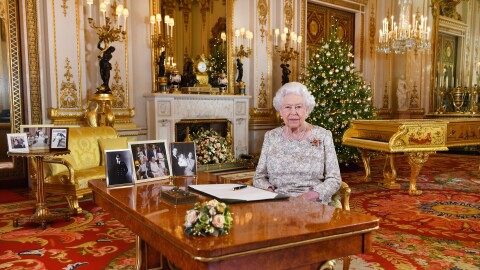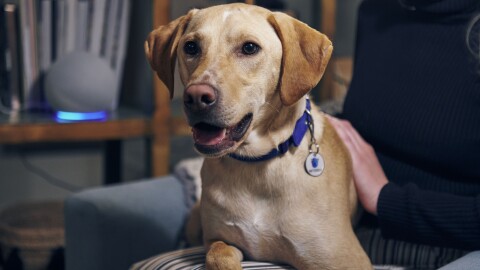Amazon’s Alexa is getting smarter when it comes to understanding regional dialect and has now worked with TV wordsmith Susie Dent to expand Alexa’s vocabulary of local phrases and language with the addition of alternative regional words.
That means Alexa is now able to respond to “Alexa, toodle pip” and “Alexa, how do?”, and provide hundreds of regional variations on words for bread roll, angry, children, television, snack time, and even different names for terrestrial isopods, most commonly known as “woodlice”.

Language expert Susie Dent explains: “Nowhere is the diversity of English vocabulary more apparent than in Britain. Our local languages are constantly evolving and changing. It is virtually impossible for people to learn every single phrase and utterance, but with technology getting smarter all the time, perhaps one day assistants like Alexa will understand everything from ‘dabberlick’ to ‘crumpsy'. In the meantime, I’m delighted to teach Alexa some new words and encourage everyone to converse more each other, and with Alexa, so we can all learn the glorious quirks of British language.”
Amazon aims to build confidence with Alexa
Britain offers a rich landscape of regional language, with thousands of local words and phrases on our linguistic map.
However, new research commissioned by Amazon Alexa asked 2,000 Brits about regional language and found that over a third of people (34 per cent) say they struggle to understand British dialects, with more than half (52 per cent) admitting they just ‘nod along’ when they do not understand.
The survey also revealed that:
- A quarter of people (25 per cent) do not understand “tidy”, “canny” and “mint” as words of approval
- Around 85 per cent of people do not know “pensy” means “grumpy”
- Nearly half of people say “elevenses” (45 per cent) as a word to describe “snack time”
- A fifth of those surveyed (18 per cent) reported feeling too embarrassed to speak up when they do not understand regional phrases and words
Generationally, 30 per cent of younger people say their grandparents use regional phrases or words they do not understand, whilst 37 per cent of grandparents are also confused by language quirks regularly asking the grandchildren to repeat and explain words and phrases.
Teaching the nuances of human language is one of the most difficult AI challenges in the world, because what might be easy for a human to understand is hard for computer systems. As this survey highlights, different dialects, unique speech patterns and local words can cause misunderstanding even in human conversation, which adds further complexity.
Ask Alexa today…
Here are some new questions you can ask Alexa to hear regional variations on words:
- “Alexa, what are the regional words for hello?”
- “Alexa, what are regional words for dinner?”
- “Alexa, what are regional words for angry?”
- “Alexa, what are regional words for bread roll?”
- “Alexa, what are regional words for woodlice?”
- “Alexa, what are regional words for snack time?”
- “Alexa, what are regional words for television?”
- “Alexa, what are regional words for happy?”
- “Alexa, what are regional words for toilet?”
- “Alexa, what are regional words for children?”
- “Alexa, what are regional words for a cup of tea?”
- “Alexa, what are regional words for sandwiches?”
- “Alexa, what are regional words for mum?”
- “Alexa, what are regional words for dad?”
- “Alexa, what are regional words for thank you?”
- “Alexa, what are regional words for nonsense?”
- “Alexa, what are regional words for delicious?”
- “Alexa, what are regional words for lie?”
- “Alexa, what are regional words for poor?”
- “Alexa, what are regional words for look?”
- “Alexa, what are regional words for money?”
- “Alexa, what are regional words for surprised?”
- “Alexa, what are regional words for underwear?”
- “Alexa, what are regional words for goodbye?”
- “Alexa, what are regional words for long time?”
- “Alexa, what are regional words for coward?”
- “Alexa, what are regional words for long time?”
- “Alexa, what are regional words for car?”
- “Alexa, what are regional words for gossip?”
- “Alexa, what are regional words for home?”
- “Alexa, what are regional words for hungry?”
- “Alexa, what are regional words for television remote?”
- “Alexa, what are regional words for attractive?”
- “Alexa, what are regional words for good?”
- “Alexa, what are some regional compliments?”
For further opinions, just ask “Alexa, what should I have for tea?” or “Alexa, how do you pronounce scone?”.
Alexa is always learning
Amazon is continually developing its speech technology to improve Alexa’s recognition of variations in British language, and through machine-learning advances, the more you speak to your device, the more Alexa understands.
In order to more accurately recognise the diverse range of dialects in the UK, language experts at Amazon’s Cambridge Development Centre also train Alexa on the variations of British speech, including phonological variation – from the distinctive Scottish rolling "R" to the use of long vowels in the South of England.
“Alexa currently speaks 15 language variants, including French, Portuguese, Hindi, and Spanish — and it’s been a lot of fun teaching her more about the diversity of regional British dialects,” explains Eric King, Director of Alexa Europe. “The more you speak to Alexa, the smarter the device will become and, with advances in speech technology, Alexa’s understanding of the nuances of British language has continuously improved.”
Dennis Stansbury, Alexa UK Country Manager, adds: “Unlike us, Alexa cannot feign understanding through nodding, so in the instance Alexa mishears a word or question, the team have worked hard on ways to get better at understanding these — like Alexa asking follow up questions to clarify what you might mean. The goal is for Alexa to work equally well for every customer, and at Amazon we’re always working to improve. On this project, Susie Dent, a top lexicographer, has joined with Alexa to highlight the complexity of the British language and bolster Alexa’s vocabulary with uniquely British phrases and words.”
Interested in hearing more British regional words? Just ask, “Alexa, what regional words did Susie Dent teach you?”.










